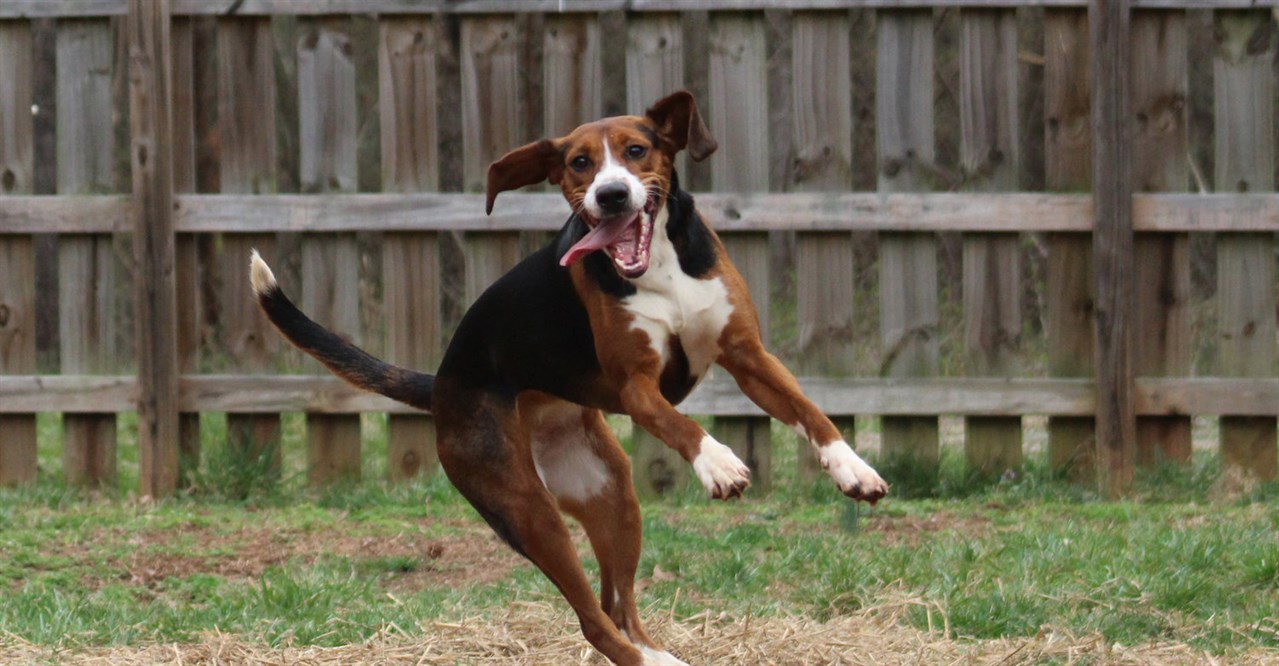Barking Habits of the Hamiltonstovare: Vocal but Purposeful

Hamiltonstovares are known for their distinctive baying bark, and understanding their barking habits is essential for responsible ownership. While these dogs may be vocal, their barking is usually purposeful and can be managed with proper training and attention to their needs.
Alertness
Hamiltonstovares are naturally alert dogs. They tend to bark when they perceive something unusual or when they are on the scent of something interesting. This alertness is a part of their hunting heritage, as their barking would signal to hunters that they had located game.
Territorial Behaviour
These dogs may bark to protect their territory or to alert their owners to potential intruders. While they are typically friendly with people once they've been properly introduced, their territorial instincts can lead to barking when someone approaches their home.
Social Barking
Hamiltonstovares are social dogs and may bark when they are excited or when they want attention from their family. They may also vocalise during playtime, expressing their enthusiasm and enjoyment.
Loneliness and Boredom
Like many breeds, Hamiltonstovares can bark if they are feeling lonely or bored. This breed thrives on human interaction and physical activity, so it's essential to ensure they are mentally and physically stimulated to prevent excessive barking due to boredom.
Communication
Dogs communicate through barking, and Hamiltonstovares are no exception. They may bark to express discomfort, fear, or frustration. Paying attention to the context in which they are barking can help you understand their needs.
Training and Management
While their barking habits are rooted in their instincts, Hamiltonstovares can be trained to respond to commands to stop barking. Positive reinforcement techniques, such as rewarding them when they stop barking on command, can be effective in managing their vocal tendencies.
Exercise and Stimulation
One of the most effective ways to reduce excessive barking in Hamiltonstovares is to provide them with ample exercise and mental stimulation. Regular walks, playtime, and activities that engage their minds can help tire them out, making them less likely to bark out of restlessness.
Socialisation
Proper socialisation from a young age can help your Hamiltonstovare become more confident and less prone to barking in response to unfamiliar situations or people.
Avoid Punishment
Avoid punishing your Hamiltonstovare for barking, especially with harsh methods. This can lead to fear and anxiety, potentially exacerbating the barking problem or causing other behaviour issues.
Seek Professional Help
If your Hamiltonstovare's barking becomes excessive or difficult to manage despite your efforts, consider consulting with a professional dog trainer or behaviourist. They can assess the situation and provide guidance on addressing the behaviour.
In summary, Hamiltonstovares are naturally vocal dogs, but their barking is typically driven by specific triggers or needs. With proper training, socialisation, exercise, and attention to their mental well-being, you can manage their barking habits effectively and ensure that their vocalisations remain purposeful and manageable.
Hamiltonstovare puppies for sale
- Find Hamiltonstovare puppies for sale in ACT
- Find Hamiltonstovare puppies for sale in NSW
- Find Hamiltonstovare puppies for sale in NT
- Find Hamiltonstovare puppies for sale in QLD
- Find Hamiltonstovare puppies for sale in SA
- Find Hamiltonstovare puppies for sale in TAS
- Find Hamiltonstovare puppies for sale in VIC
- Find Hamiltonstovare puppies for sale in WA